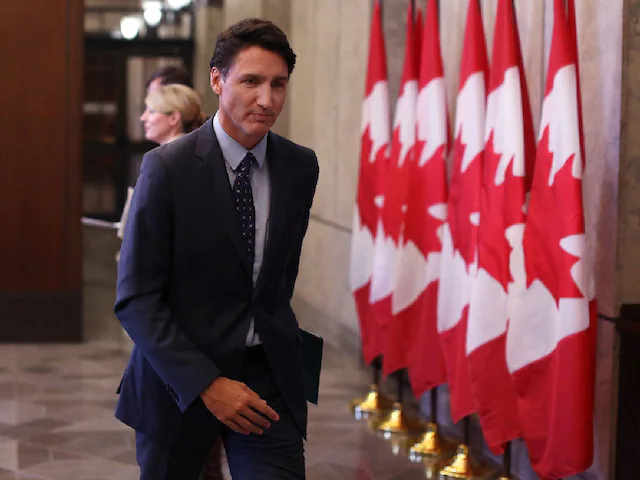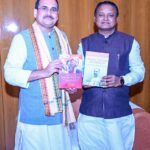‘Quaint’ Then, ‘Cavalier’ Now: The Trudeaus of Canada
- By : Dr Anirban Ganguly
- Category : Articles

The only ones in India applauding, serenading and commiserating with Canadian Prime Minister Justin Trudeau in his demi-tour are MPs of a regional Indian party, the Trinamool Congress (TMC), which is restricted to the eastern flank of India, far, far away from Canada. The Bay of Bengal, the Andaman Sea, the Gulf of Thailand, the South China Sea, the East Sea, the Philippines Sea, the Pacific Ocean, and the Gulf of Alaska separates this regional political party from Canada and Trudeau. Yet, some of its vocal members are aroused each time Trudeau, the FBI, the CIA or the Khalistanis find a mention.
Such cavorting is understandable. Having lost the tag of a national party, members of this party, limited to operating out of West Bengal, have now developed the delusions of being an international party with international political interests!
With their party’s supremo, the West Bengal Chief Minister, preoccupied with carnivals, some of her party’s MPs are clearly emerging as assets and mouthpieces for elements that are detrimental to India’s national security and stability. While such a trend in an Indian political party is worrisome, the only point of relief is that the TMC is a party which few take seriously anymore, not least when it comes to the affairs of the state and on larger issues concerning India’s well-being. It is just that one needs such appendages in the Indian political system, indeed in any political system, for the sheer guignol aspect they emanate and its entertainment value.
Is anyone surprised anymore with Justin Trudeau’s revirement, his U-turn on a position which he had bullishly held on to and had used to cater to a vote-bank at home by trying to castigate India globally, especially last year when India held the G20 Chair in a remarkable display of creative leadership and farsightedness. No, it is not surprising, since it is typical of the Trudeaus to do what Trudeau is doing.
In his Blood for Blood- Fifty Years of the Global Khalistan Project, veteran Canadian journalist Terry Milewski goes into details of the ‘global’ Khalistan project and the sanctuary and support Canada offered it. In Ireland, in 1985, to cover the Air India bombing, Milewski followed the story behind it for thirty-five years. His is a book that ought to be read and disseminated, especially during these times, when various forces are at work trying a rerun of the global Khalistani activities of the 1980s.
“Canada”, writes Milewski “cannot be compared to Pakistan as a springboard for Khalistani militants in the past forty years, but it has offered them the great advantage of a congenial legal and political environment.” In 1982, when the Indian government requested the Canadian government to extradite Talwinder Parmar to India, accused in the 1981 killing of police officers in Punjab, Justin’s father Pierre, then Prime Minister of Canada, had refused. The refusal, writes Milweski, was “on the quaint grounds that India was insufficiently deferential to the Queen.” More preposterous than quaint, “Canadian diplomats had to tell their Indian counterparts that extradition protocols between Commonwealth countries would not apply because India only recognised Her Majesty as Head of Commonwealth, and not as Head of State. Case closed!”
Canada, Milweski observes, “didn’t have to ponder the evidence against Parmar or keep him locked up, as Germany did for a year while considering another Indian bid to extradite him in 1983. When the Germans finally let him go in 1984, Parmar came back to Canada a free man and a hero to boot.” He would go on to mastermind the Air India bombing in 1985 which killed 329 people. It was one of the most genocidal sabotages in the history of aviation. Milewski also details how both the Canadian Security Intelligence Service (CSIS) and the Royal Canadian Mounted Police (RCMP) botched up the intel inputs and the investigation of the Air India bombing.
Beginning in 1982, Milewski records, “Canada’s security services knew that a terrorist group, the Babbar Khalsa, was operating in Canada; that it had dozens of killings on its record; that its leader, Talwinder Parmar was wanted for murder; and that he was preaching that ‘Indian planes will fall from the sky’, yet Trudeau senior did little to rein in these elements.” Three months before the Air India bombing, the CSIS had begun to watch and wiretap Parmar, and yet the agencies could not and did not move to prevent the bombing.
In fact, on June 1, 1985, “three weeks before the bombing of Flight 182, the Air India security manager in Mumbai, reviewed reports from Indian intelligence agencies – which were active in Canada – and hit the panic button.” Fairly detailed telex messages were sent to Air India offices across the world on the possibility of attempts being made to “blow up an aircraft by smuggling in of explosives in the registered or carry-on baggage or any other means.” Yet when the telex message was relayed to the RCMP on June 1, it “seemed to be bored by the constant warnings and saw no need for additional measures. It did not even share the telex with the CSIS.”
What was intriguingly shocking, reveals Milewski, was that the “CSIS recorded some 210 tapes from Parmar’s phone between 27 March and 1 July 1985 – that is, during the three months before and the week after the bombing on 23 June. Of those 210 tapes, 156 were erased…and only fifty-four were kept for the RCMP review.” The CSIS, “only reluctantly and belatedly revealed to the police that the tapes even existed and gave ‘feeble’ explanations on why it erased the tapes. But what was beyond feeble was that the CSIS kept on recording Parmar after the bombing, and, incredibly, knowing at once that he was the main suspect in a massacre, kept on erasing the tapes for another seven months, until ordered to stop in February 1986.”
In an interview sometime in 2003, late K.P.S. Gill had asked whether such behaviour was “mere carelessness, or was it complicity?” The families of the victims, Indians who were Canadian citizens, recall how “Canadian government officials did not seem to care at all…This was not their tragedy to deal with, but India’s. Didn’t matter that we were Canadian citizens.”
Justin Trudeau’s cavalier attitude came to the fore during his 2018 state visit to India. Trudeau junior’s “junket”, Milewski writes, “attracted considerable mockery because of the elaborate Indian costumes Trudeau chose to wear – dressing like an Indian bridegroom for business meetings with Indian politicians. It was comparable to an Indian prime minister wearing a top hat and tails to visit Canada or the UK.”
The 2018 Trudeau junket, as it moved towards Mumbai, revealed its true texture. Convicted Khalistani hitman, Jaspal Atwal, posed with a flourish, with Justin Trudeau’s wife Sophie Gregoire Trudeau at a ‘posh diplomatic reception.’ Atwal was convicted for shooting then-Punjab cabinet minister Malkiat Sidhu, who was on a visit to Vancouver in 1986. “The picture was real”, writes Milewski, “more pictures arrived showing Atwal with other members of Trudeau’s entourage, while another showed an invitation to the next day’s dinner for the Trudeaus in New Delhi. The host: Canada’s High Commissioner. The guest: Jaspal Atwal. A convicted terrorist had the inside track on Trudeau’s Indian junket. He was dining with the Trudeaus in both Mumbai and New Delhi.”
In Canada, the Khalistan issue turned to politics, notes Milewski, “but unlike their comrades in Punjab, the extremists in Canada went from strength to strength, showing an astute understanding of law, politics and media…” with a group of powerful Canadian politicians pandering to them for votes and vote-bank.
It is in Justin Trudeau, thus, to do what he is doing. He is adhering to the protocols of his lineage. As the saying goes, like father, like son.

















